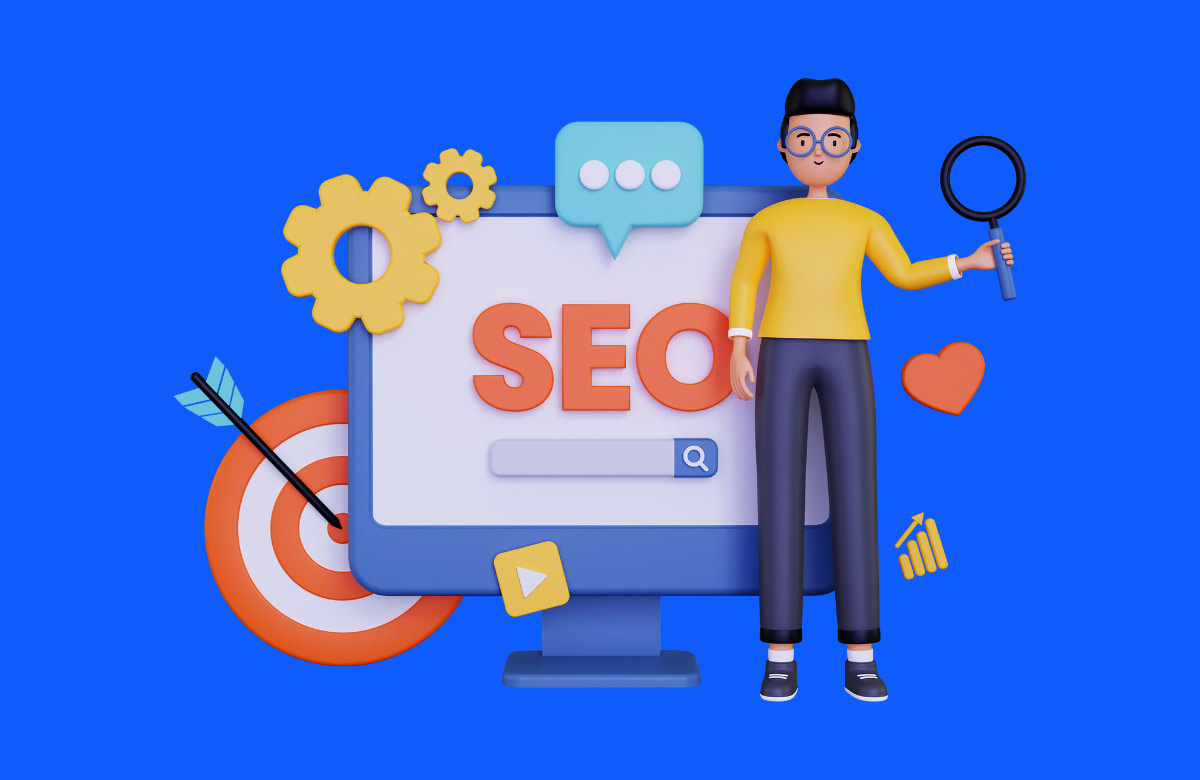The world of eCommerce is dominated by two powerful platforms: Shopify and WooCommerce. But, do people choose from any of these two and what are the criteria to make this choice?
If you are one of those entrepreneurs who can’t decide on what platform is best for their needs, don’t worry, you’re not alone!
In this article, we’ll give you a comprehensive comparison of WooCommerce and Shopify so you can make an informed decision in the future. Enjoy!
Table of Contents
Getting Started: Setup and Ease of Use
Nobody wants to go through hours of coding just to open an eCommerce store, right? That’s why the platform setup process is crucial. Is Shopify better?
WooCommerce: Installation and Setup Process
WooCommerce is a WordPress plugin. This means that, before actually using WooCommerce, you must set up a WordPress website. To do that, you need to find and buy a domain, choose the host and launch the site.
Once your WordPress site is up, you can install WooCommerce. Only after that, you can start configuring the store.
WooCommerce is much harder to operate than Shopify. Without tech skills, not everybody can navigate the plugin.
Free WooCommerce themes like Blocksy can simplify things a bit. It allows you to customise your eCommerce site without any coding knowledge. If you want more advanced features, Blocksy Pro offers tools like Product Brands and Variation Swatches.
Consider exploring eCommerce starter sites that come pre-built with essential features, allowing you to get your store up and running quickly without the need for complex setup.
Shopify: Quick and Simple Store Setup
Setting up a Shopify store is much easier than setting up a WooCommerce store. If you are a beginner and have never worked with websites before, Shopify should be your choice.
The platform guides you through the process of setting up a store. Uploading your products is also a treat. The platform even allows you to add products in bulk using CVS files, which is especially useful if you’re migrating from another platform.
Once you’ve added the products, you simply have to choose a template and the website is ready to use. The content? Shopify has a great AI tool that can help you with product descriptions, headers and more.
Tailoring Your Store: Customization and Design

Making your store recognizable is one key to user retention and more conversions. Let’s see who gives you more tools to turn your site into a beauty:
WooCommerce: Flexible Customization Options
Customization is WooCommerce’s strong point. Operating on an open-source base, WooCommerce allows developers to go crazy, creating hundreds of themes.
Take Blocksy for example. The theme offers a great number of advanced features and extensions that can completely reshape your store.
The customization part doesn’t end with the themes. If you have the technical skills or can employ a skilled developer, you can create the website from scratch. This way, you can reach a 100% level of authenticity and don’t have to settle for Shopify’s templates.
Shopify: Built-in Templates and User-Friendly Design
Shopify took the beginner-friendly approach here. The minute you set up a Shopify account, you gain access to 70+ free and several paid templates you can use for your store.
However, you can’t do more than that on Shopify. The platform doesn’t give you as many customization tools as WooCommerce.
So, if you’re aiming for complete authenticity, Shopify is not the best choice.
Expanding Functionality: Features and Extensions
No platform will give you all the functionalities you’ll need. That’s why having a wide library of extensions to choose from is an underrated advantage! Let’s see who wins here:
WooCommerce: Plugin Ecosystem and Flexibility
With a little work and some tech skills, WooCommerce can be equipped with any eCommerce feature there is. Using a plugin-friendly theme like Blocksy Pro can help you with that.
Shopify: Built-in Tools and App Store Solutions
Shopify comes with many built-in features but doesn’t have as many plugins as WooCommerce. The platform, however, compensates for the lack of plugins with the amount of great native features.
From inventory to shipping and payment gateways, Shopify took the sales features to a whole nother level. It offers you all the needed tools to manage any type of business, from small individual businesses to large stores with hundreds of daily sales.
Understanding the Costs: Pricing and Expenses
The more money you spend keeping the site up, the less profitable it is. So, who’s cheaper – Shopify or WooCommere?
WooCommerce: Cost Breakdown and Ongoing Expenses
WooCommerce is a free platform, but don’t rush your horses. Instead, you’ll have to pay for hosting, domain, plugins and themes if you have any.
For example, Blocksy Pro will come in with a price tag of $69 per year for personal stores and $99 per year for businesses. The plugins are also expensive. For example, Yoast SEO comes with a price tag of $99 per year.
However, if you don’t need the extra tools and features they provide, you can always use their free version.
The one thing you will have to pay for is hosting. Hosting can range from $5 to $50 per month, depending on how much storage space you need. The domain can also get expensive, especially if you have a recognizable name.
If you’re looking for more affordable or customizable design options, check out our top 10 best WooCommerce themes, which offer a variety of features to fit different budgets and styles.
Shopify: Subscription Plans and Additional Fees
Shopify, compared to WooCommerce, is a paid platform that operates on a subscription model. The basic plan is priced at $39 per month. This will give you a limited number of features, perfect for novice entrepreneurs who’ve just started their business.
For more features and larger numbers, Shopify offers three advanced plans: Shopify, Advanced and Plus. These are priced at $69, $299 and $2,300 per month respectively.
Driving Traffic: SEO and Marketing Capabilities
SEO is the best way to drive more sales without paying thousands of dollars for marketing on Facebook and Google. Let’s see how these two platforms are doing in this aspect:
WooCommerce: SEO Flexibility with Plugins
WooCommerce is a plugin for WordPress, a highly SEO-friendly website builder. With plugins like Yoast SEO, you can fully optimize your pages to rank higher and drive more sales.
WooCommerce itself offers you the possibility to change many important SEO components. You can alter body content, URLs, meta descriptions, alt tags and other on-page elements to get the maximum result.

Shopify: Built-in SEO Features and Limitations
Shopify is equipped with a lot of built-in features. However, the platform doesn’t give you the full range of tools an expert might need to squeeze out the most from your pages and boost the rankings.
With Shopify, you can optimize product pages and meta descriptions. If you want more than that, you need to buy additional apps that will open such functionalities.
Preparing for Growth: Scalability and Performance
Nobody has ever opened a store without the thought of scaling it in the future. For that, you need a platform that can handle increased volumes with ease. Is it WooCommerce or Shopify?
WooCommerce: Handling Growth and Traffic Spikes
WooCommerce handles large-scale stores with ease. However, you’ll need to find a powerful hosting provider to manage the increased traffic.
That could inflate the budget of keeping the website live up by a couple hundred bucks. Other than that, WooCommerce can handle thousands of daily visitors without breaking a sweat.
Shopify: Built-in Scalability with No Hassle
Shopify handles scalability with ease. No matter the number of items sold or the number of daily visitors, your website will work the same.
Shopify is designed to manage growth without requiring you to manage hosting or server performance. You only have to pay the monthly subscription and the platform will take care of that.
Getting Help When Needed: Support and Community
When something goes wrong, the only help you’ve got is the platform’s support and community. How is WooCommerce doing on this part?
WooCommerce: Community Forums vs. Paid Support
WooCommerce is an open-source plugin, which means there is no centralized support for you to ask questions.
However, the platform has a large community of users, most of them with years of experience, who will gladly help you.
For those with no technical skills, this might be a problem. In that case, you’ll have to hire a developer to implement all the changes you have in mind.
Shopify: 24/7 Customer Support and Resources
Shopify offers 24/7 customer support via live chat, phone, and email, ensuring you have assistance whenever you need it.
Making Your Decision: Is WooCommerce Better than Shopify
| Feature | WooCommerce | Shopify |
|---|---|---|
| Ease of Use | Moderate (Requires setup) | Easy (Guided setup process) |
| Pricing | Free (Hosting costs apply) | Starts at $39/month |
| Customization | High | Limited |
| Scalability | Depends on hosting | Easily scalable |
| SEO Features | Advanced via plugins | Built-in basic SEO features |
| Support | Community-based support | 24/7 customer support |
So, here you have it, a complete comparison between WooCommerce and Shopify. Who’s better? Depends on what you need!
If you are a skilled WordPress developer, WooCommerce is the right choice. It gives you more choices, but they come with a big learning curve that not every entrepreneur wants to pass.
If you just want to open a store and don’t know what hosting is or how to buy a domain, it will be easier to go for Shopify. At least until you get up-to-date on all the technicalities of owning a website!







The problem with Woo is the project itself. Vs Shopify the support and enforcement of standards and rules is too lax and leaves too much room for shoddy 3rd party developer solutions, who junkware ultimately costs implementors of Woo too much time. Woo is also a time consuming implementation if you have a highly customized requirement. Shopify is on the surface more expensive, However, the time you save and the enforcement of development standards makes it a superior solution. The problem with Woo and why it’s declining in reputation and adoption lies with it’s primary developer team and the paradigm they live in, which is not likely to change. My recommendation is to do a hybrid site of WordPress and Shopify, possibly using Blocksy?, but that depends on the theme cross platform availability? Does Blocksy have cross-over theme’s for Shopify integration?
Hi Mark,
No, unfortunately we don’t have an integration/solution for Shopify at the moment.
WordPress and Woocommerce are outdated and stuck in time.
They are not offering what users want “asap”.
Now the “key” is migration tools to other platforms.